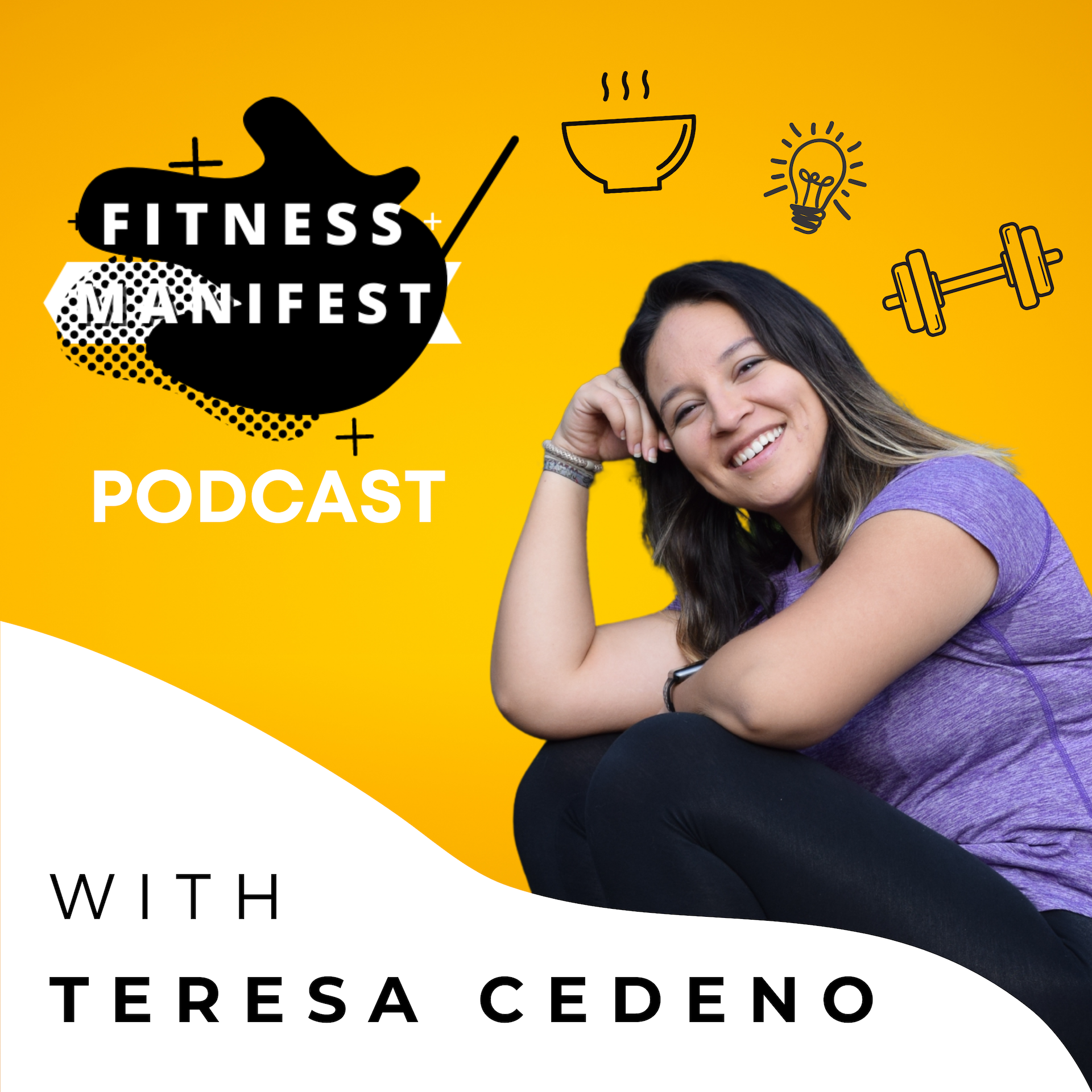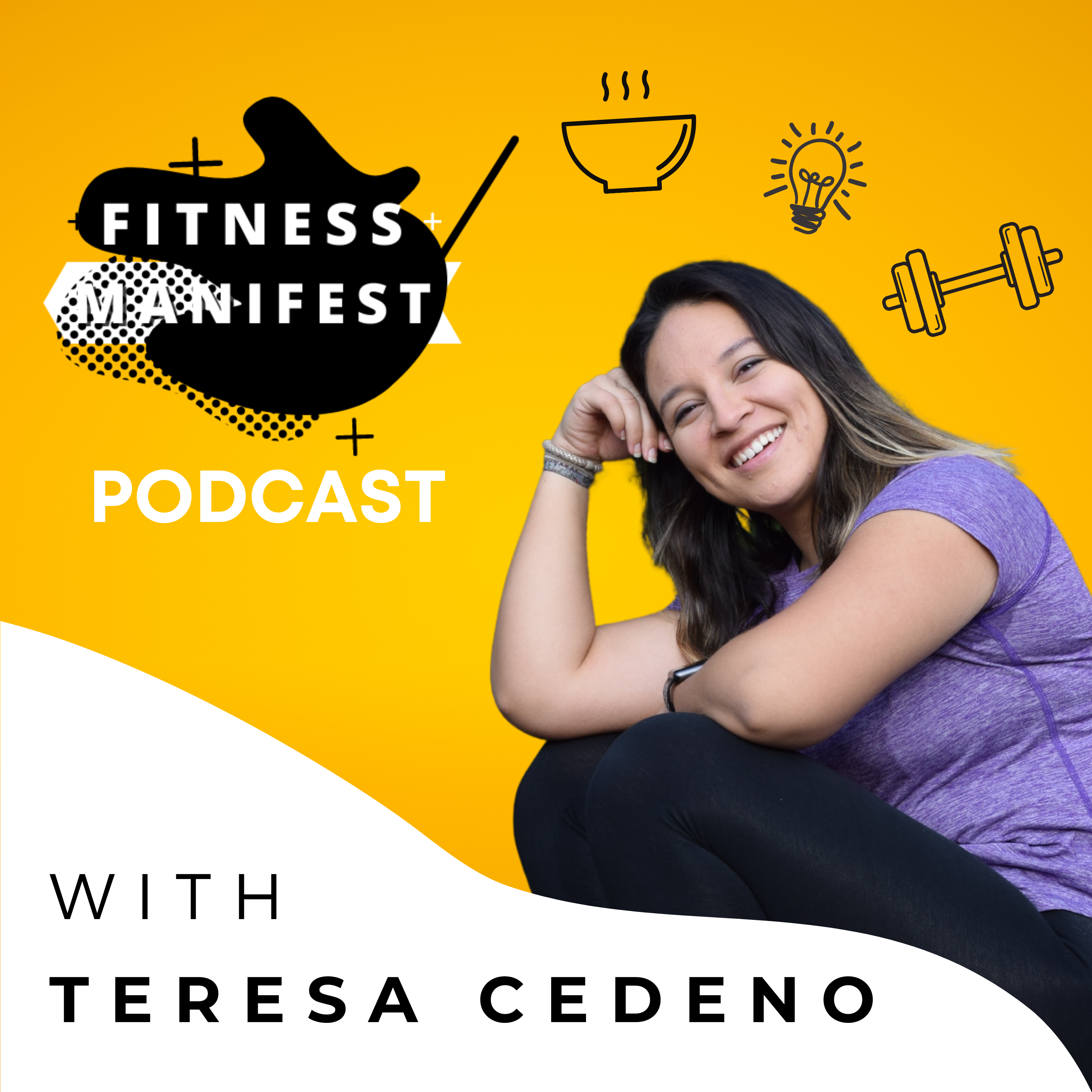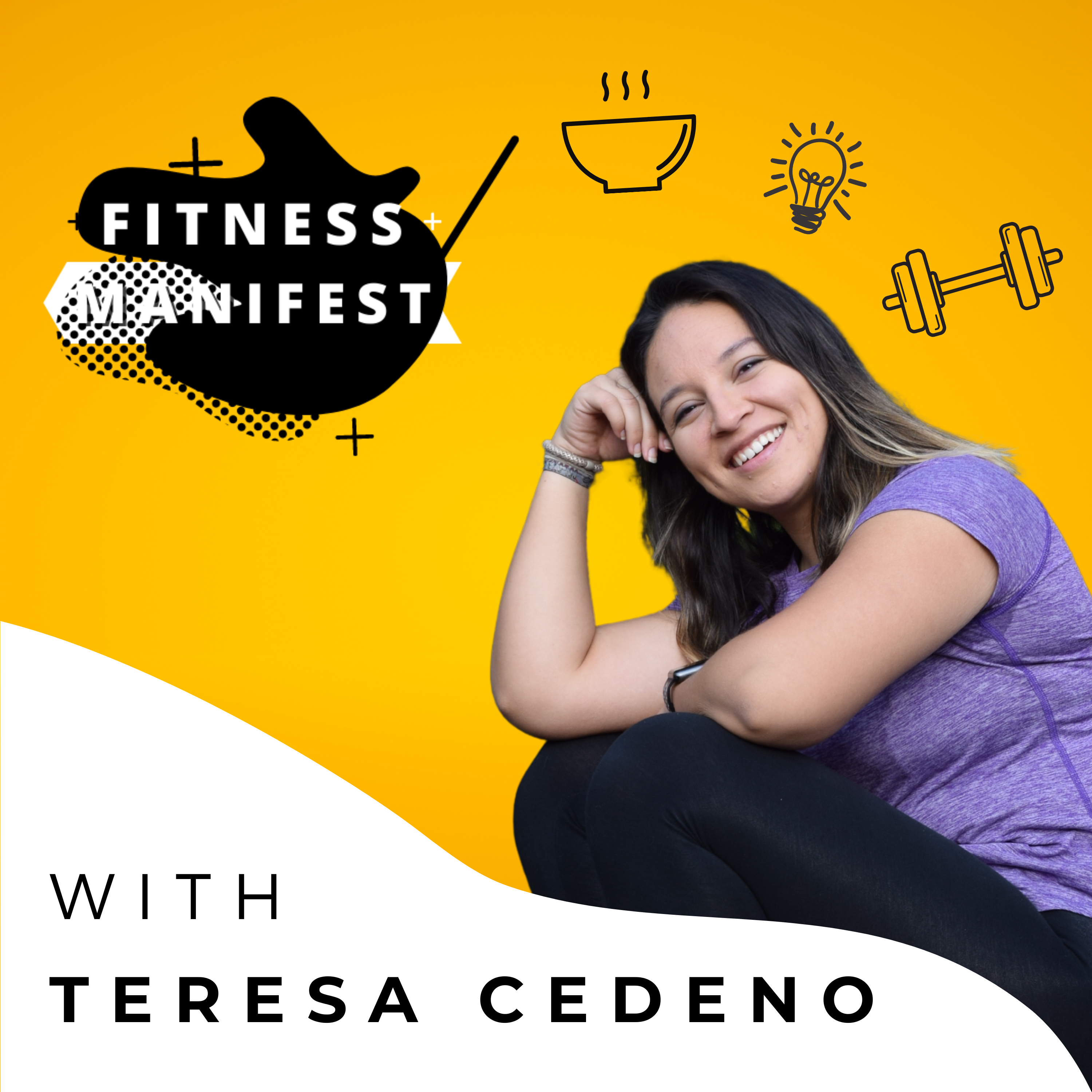Episode Transcript
Speaker 0 00:00:00 Hello, my little sugar cubes. Welcome to the fitness manifest podcast. If you
Speaker 1 00:00:07 That's a resort
Speaker 2 00:00:10 Side effects might include motivation, empowerment, giggles. Enlightment inspiration.
Speaker 0 00:00:17 Welcome to the fitness manifest podcast. My name is Theresa Sado. I'm a personal trainer teaching you how our bodies work, how to incorporate new healthy habits and how to reach your fitness goals with longevity in mind, when you lose weight, the first couple pounds come off relatively quickly after a few changes to your exercise and diet, but then you hit a plateau and what was working before to lose weight isn't working anymore. So what happened today? I'll tell you what causes these plateaus, how your metabolism changes as you lose weight and what you're probably most excited about what you can do to overcome the plateau and continue losing weight. To start let's understand the basics. Why do you weigh what you weigh today? We don't think about it because we're usually so distracted by trying to change what we weigh your weight is determined by the calories you absorbed from your food.
Speaker 0 00:01:14 Minus the calories you burn through digestion, physical activity, resting metabolism, and non-exercise activities like running errands, doing chores and carrying groceries. Now let's say you suddenly change what you're doing. You decreased your calorie intake and you increased your physical activity. Your body now needs more energy. Didn't match your new consumption. So it's gonna use energy stored in your fat cells. As a result, you start noticing that you're looking thinner or leaner, and your body's gonna continue to tap into its energy stores until the amount of calories you expend and consume balance out. So why do plateaus exist? Well, first, your total energy expenditure will decrease after you lose weight or body fat, because there's simply less of you. It'll take less calories, roughly five to 10% less to move your body. Other studies estimate that percentage can be up to 23% less calories. So if you used to burn a hundred calories during your daily walk, now you may only see that you're burning 95 calories.
Speaker 0 00:02:21 Another way your body adapts to a calorie deficit is that your brain will give instructions to increase how many nutrients it absorbs from your food, your brain senses that you're not eating as much. So it can't let nutrients go to waste. Like it could be for you essentially gave your body a PACA and now your brain has to budget and make every dollar count. So no more frivolous spending, not only will you absorb more of your food, but your brain will also try to convince you to eat more. You might feel stronger cravings or that it takes more food to feel full. This is especially the case. If you restrict your diet dramatically, by cutting out food groups or eating under a thousand galleries, restricting your calories to a low level, also comes with another side effect, an increase in cortisol levels. Your stress hormone, when cortisol levels are high, your body may retain water making you appear softer or less lean, or you may get strong cravings and go through binge episodes.
Speaker 0 00:03:22 Let me switch gears now and tell you how to overcome a plateau in order to stimulate further weight loss, you can do the following few things starting with focusing on your protein intake. On average active women should eat four to six Palm size servings per day. Each Palm size serving is between 20 and 30 grams of protein. So about 80 to 180 grams of protein per day, active men should eat between six to eight Palm size servings per day, which adds up to 120 to 240 grams of protein per day. Protein helps maintain your muscles, connective tissues, bones and organs increasing how much protein you're eating or drinking can help you overcome a plateau because it'll help you feel full longer. And protein causes a high thermic effect of food. What is it you ask? Well, the thermic effect of food is the calories you burn from digesting.
Speaker 0 00:04:21 The food you eat. Protein takes the most energy to digest 20 to 30% of total calories in protein, go to digesting it. And then carbohydrates take about five to 10% to digest and fats use zero to 3% of calories to digest. So in a simplified version, if you eat a hundred calories from protein, your body will use 20 to 30 calories to digest and absorb it. Healthy sources of protein require a lot of calories to digest and aren't high in calories, which is great. When you're trying to lose weight, healthy sources of protein include poultry, beef, pork, seafood, and Turkey, but it can't be fried or deli meat. And some vegetarian options would be lentils, beans, eggs, and yogurt. The second thing you can do is include more whole foods and less refined carbs and fats in your diet, whole carbs like oatmeal, quinoa, potatoes, and fruit will provide your body with tons of minerals and vitamins.
Speaker 0 00:05:25 They'll keep you full and or low calorie. Whole sources of fats include nuts, seeds, olive oil and coconuts aim for four to six handful of carbs and six to eight thumb size portions of fat for women and for men around six to eight handfuls of carbs and eight to 10 thumb size portions of fat. The energy you burn during digestion will increase if you're eating more whole foods because these foods take more energy and time to digest. A really interesting study by Sadie bar gave 17 participants, a processed cheese sandwich with white bread and later a whole cheese sandwich with whole weight, bread and real cheddar cheese. The calories and macros for these sandwiches were almost identical. And according to participants, both sandwiches felt equally as filling, but after eating the whole food cheese sandwich participants burned 46.8 more calories than when they digested the processed cheese sandwich.
Speaker 0 00:06:31 Now this isn't your sign to just eat cheese sandwiches every day. Although the results were promising. Keep in mind. The sample size in this study was very small. So instead just focus on eating mostly whole foods. Aside from your nutrition, you can make other changes that will help you overcome a plateau, find ways to increase your non-exercise physical activity park in the lash row of a parking lot. Take the stairs, set up a treadmill desk or do active things. When you hang out with friends next focus on keeping your cortisol levels low by creating space for relaxation, you can create a wind down routine to get relaxed and ready for seven to nine hours of sleep and experiment so that you can find what ways work best for you. As I mentioned before, cortisol will make your body resist weight loss. So this is one of the most undervalued areas where you can make progress in your weight loss journey.
Speaker 0 00:07:33 There was a lot of great options in this episode for the manifest challenge. It was honestly really difficult to choose one for you guys this week. But I think that you should start with getting enough protein and then moving on to increasing your non-exercise physical activity. If you need ideas, check out my Instagram and let me know how you're progressing. That's it for this episode, if you enjoyed it or found it helpful, consider writing a review for me, it helps me grow the podcast and it helps me help more people in their weight loss journey. I'm your host coach there. And until next time
Speaker 1 00:08:13 There
Speaker 2 00:08:16 Side effects fight include motivation, empowerment, giggles, and Lightman
Speaker 0 00:08:20 Inspiration.


